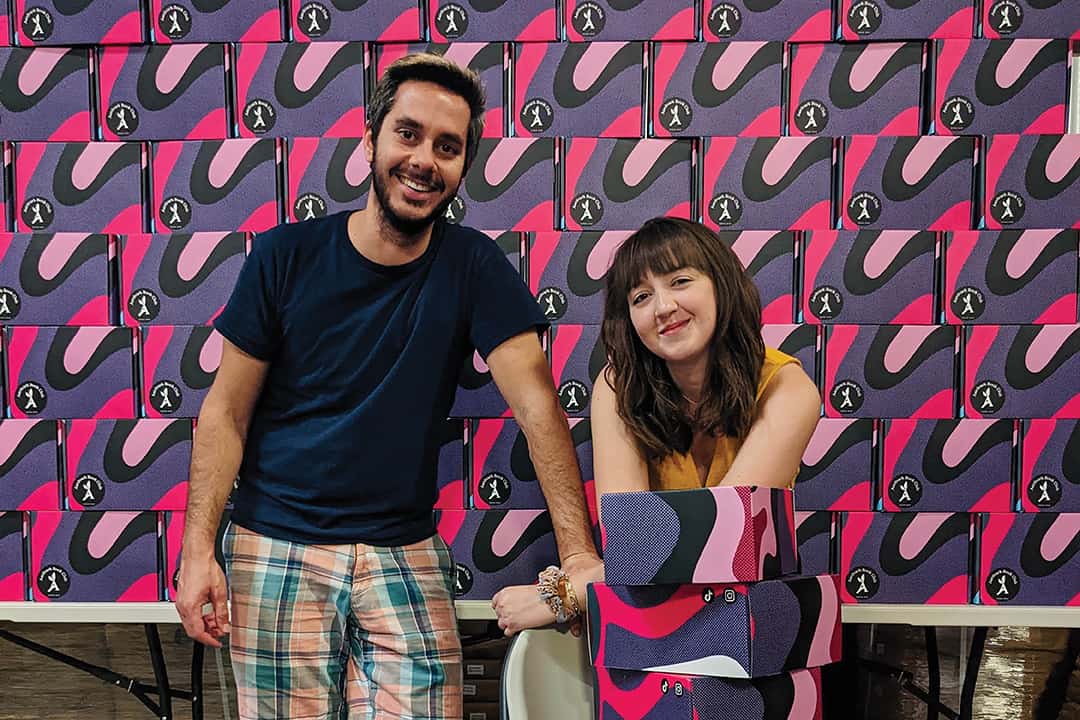In the age of BookTok and BookTube, literary communities find themselves increasingly situated online, and a new book subscription service, Aardvark — developed by U of T alumni Ozan Coskun and Bronwyn Sutherland — understands that. Described by one of its founders as a “twenty-first century book club,” Aardvark sits at the midway point between a social media platform and a streaming service, providing members with both monthly book hauls and a place to discuss those books.
The reading service
The idea for the service came about during Toronto’s lockdowns toward the start of the COVID-19 pandemic. “I think [that], like a lot of people, both of us found ourselves reading [during the pandemic] probably more than we had for years, more than we probably had since high school,” Sutherland said in an interview with The Varsity. “And at the same time, there are subscription services everywhere, like Netflix… So then the idea kind of naturally formed of ‘why not combine the two?’”
The way it works is that Aardvark announces four or five new releases for readers to select from at the start of each month. After choosing a book — or even two or three if you’re feeling it and have an extra $13.99 to spare for each — physical copies are then sent to the customer, at which point they can read their selection. Membership is just over $25 a month; however, the website assures you that ‘being in their hearts’ is complimentary.
Coskun and Sutherland chose to ship physical books rather than ebooks because they wanted to give readers an experience that can’t be replicated with electronic media. “The vast majority of people still love the feeling of touching the book, flipping through its pages, [and] the smell of it. It’s just an unmatched experience,” said Coskun. “The positive energy it gives you is something you cannot have with ebooks, or audiobooks, or anything [else].”
“There is something special about a physical book,” added Sutherland. “We’ve noticed there’s also a strong inclination… to collect books, display them in a certain way. It’s not just decor, and it’s not just functional, it becomes like a personal collection of sorts.”
Beyond the reader’s experience, Aardvark offers a new approach to distribution for both publishing houses and writers alike. “We want to showcase new authors, give them a chance to get their work out there to an audience, and then also just bring more community in general,” explained Bronwyn.
The social media platform
Once subscribers have read their selection for the month, they can join dedicated, book-specific clubs available on the Aardvark app. The social aspect was a major driving force for Coskun and Sutherland: “We wanted to provide a designated place… where you can discuss [books],” remarked Bronwyn. “So it’s really just carving out a space and making that a priority. That’s why even with the v.1 baby version of our app, that is something we are adamant about.”
On top of aiming to foster community in publishing, Aardvark’s model helps readers stay readers while at university by helping them maintain a routine. As somebody constantly hit with a barrage of course readings and, worse yet, rambling emails every week — an experience that is by no means unique at U of T — I often have trouble making time for personal reading. By shipping books on a monthly basis, and providing platforms to discuss them, Aardvark hopes to anchor subscribers to a routine.
“I think the university demographic is definitely one of our target demographics… it can be very challenging to carve out time for reading,” said Bronwyn. “We could be a good solution where you sign up, you get a book a month, and you can commit. You can almost make it a habit to keep up with your reading.”
Going forward, Aardvark also hopes to showcase new authors in Q&A sessions, giving readers the chance to interact with up-and-coming writers in a more personal setting than traditional social media. “I like to think we’re adding another place to gather to the [literary] landscape,” said Bronwyn. “These communities were here before us, and they’ll continue to thrive… I think we just want to add to it and really just make another space for people to gather.”


